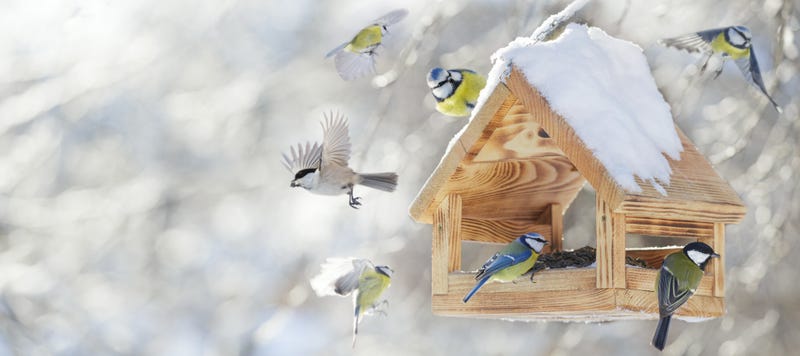
PHILADELPHIA (KYW Newsradio) — A listener wrote in with a question about contracting bird flu through bird feeders. KYW Medical Editor Dr. Brian McDonough says, while wild birds can carry the virus, there are no official recommendations to take down feeders. Just wear gloves and handle feeders with care.
McDonough tells KYW's Michelle Durham in their weekly conversation that bird flu is primarily a farm issue, with cases linked to contact with infected poultry. He notes there has been a 50% fatality rate in human cases since the late 1970s, but he says human-to-human transmission does not occur.
Michelle Durham: We're going to answer a listener question today. His question is: "Dr. Brian, can you catch bird flu just interacting with your bird feeders, either refilling it, cleaning it?"
Dr. Brian McDonough: Here's where they are right now. They have not made any official recommendations for people to take down bird feeders. And we know that the birds that we see bird flu in are domestic farm animals — like chickens, even turkeys, those things. However wild birds, song birds, can get bird flu.
You just gotta wear gloves, clean the bird feeder, be very careful about it if you're going to feed right now. [Doctors] are not worried about transmission through that. So they're saying this is a non-factor.
However, I'm always a little bit more overprotective. Why would you not wear gloves or shield your eyes while you're cleaning a bird feeder?
The thing that you have to really worry about in your backyard or on your property is if there's a wild bird, like a bird that has died. You don't want to go near it. You don't want to be picking it up with your hands or whatever, because theoretically you could get the virus that way.
But where we're really seeing it — and the CDC is really going over this — is on farms, is through cows. They're milking cows; there are chickens on the farm. That's where we're seeing the cases that go to you, and we're not seeing them out in the public right now.
It's interesting, because people's awareness is certainly raised. In my community, we have a website, and somebody put on the website that there was dead geese out on the golf course, and to not go near it without gloves or some kind of a face shield. And I think that's a good thing.
I think it's great. I think the more people know and are aware of the causes of spread, that's better. And I think this is something we want to get out in front of, so maybe we don't have a lot of the intrigue we've seen with other viruses.
Going back to the late 1970s, bird flu has been fatal in about 50% of cases where humans have gotten it. Now, humans don't spread it from one to another. They've just gotten it.
But in the cases, in the U.S. right now — there's about 66, I think — there's one fatality. It's been much more mild here, which is good. But as you know, we've learned from COVID. Viruses mutate and they change. That's why we're keeping our eyes open and monitoring it.
And I think people are concerned about the food supply, and I want to reassure them about that. They're concerned about eating chicken. They're concerned about eggs. Your thoughts there, based on the latest data?
The biggest thing you're going to see with the food supply right now is the price of eggs are going up, because so many chickens ... had to be slaughtered to stop the spread of the virus. So there's not as much egg production.
The eggs, you want to make sure you cook, and you make sure you do just like you would worrying about salmonella or anything else ... but you should not worry otherwise. The food supply is safe.
